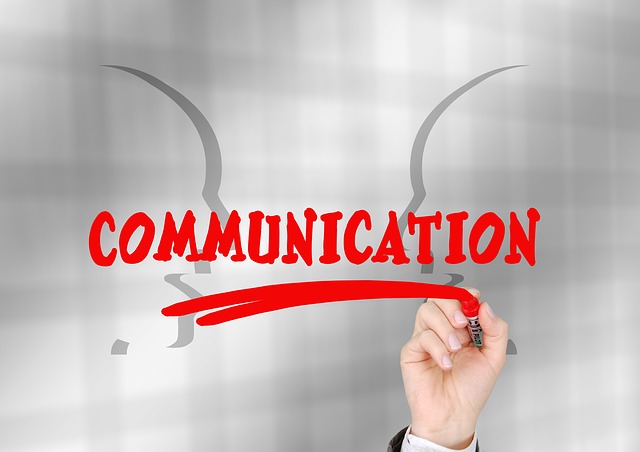It’s critical to note that a relationship has many benefits—how it might help with mental health and everyday life—apply only to healthy relationships.
What does a Happy, Loving Relationship Look Like?
It might be challenging to identify the problems when you’re in a poor relationship. These are the elements of a happy relationship:
- You have mutual trust and can discuss your feelings and views without fear of mockery.
- You value each other’s opinions.
- Each partner in the relationship cherishes it and makes time for each other.
- You listen to each other and are willing to compromise when problems emerge.
- Neither person is entirely reliant on the other.
- You may discuss or disagree without threatening each other with violence.
- There is no physical, emotional, or other abuse.
Whether you’re in a relationship or are currently single, Valentine’s Day is an excellent opportunity to consider improving your love life and honing the abilities that keep love alive.

Improving your social life by exposing yourself to more people and events is an excellent way to find the love of your life or add more fun and excitement to your current relationship.
Define your Goals
It helps to know what you want to achieve, and this is true of love as much as it is of everything else. We emphasize that it is about what you desire, not what society expects.
We go further and further away from actual happiness when we pursue things we believe we should go for rather than things that are intrinsic to our distinct identities. Begin by analyzing your romantic requirements and creating your relationship goals.
What do you want to gain, and what do you hope to get from a collaboration? When you know what you want, you can look critically at your behavior patterns to determine if they are assisting or hindering your search for enduring love and make adjustments if required.
Take Advantage of Yourself alone
While persistent loneliness is unhealthy and can lead to depression, feeling lonely is sometimes acceptable whether you’re in a relationship.
And feeling emotionally isolated from others doesn’t have to be bad if you utilize those lonely feelings to motivate you to make the necessary adjustments that will shift your life on a more positive path.
Finding a long-term partnership requires effort. You don’t want to settle for a string of casual relationships if you want something long-term.
Begin by paying greater attention to existing relationships and reconnecting with folks you’ve lost contact with overtime. Join organizations and special interest groups, or volunteer, to meet new people. You never know how and where to meet someone new, but you won’t encounter them unless you put yourself out there!
Maintain a Healthy Love Budget
While generosity is regarded as a desirable attribute, lavish spending on dinners and presents may convey an incorrect impression to a current or future companion.
Exhibiting a more significant propensity to save money may create a better appearance because it demonstrates your ability to exercise self-control and is likely to acquire more financial resources over time.
However, be cautious not to look overly restricted or controlled when it comes to your finances. That may cause someone to feel you’re not entertaining and won’t add any excitement to the relationship.
Begin Conversing

If and how partners communicate and individual desire to change can influence whether or not they can handle difficulties and a relationship’s quality.
A cooperative and compassionate approach best addresses some minor disputes that do not put anybody on the defensive.
Serious issues may need to be handled more openly, but this technique is only beneficial when both partners are confident and comfortable enough in the relationship to respond productively.
When one or both partners lack confidence, a critical or belligerent attitude may wreak havoc on the relationship. Try to use soft words like, ‘I was wondering… how would you feel about…’ or ‘Could we perhaps…’ open up the dialogue, but phrases such as ‘You always…,’ ‘You never…,’ ‘You need to…,’ and ‘You should…’ suggest judgment and would quickly shut off a conversation.
Decide on Sex
Couples often have varying levels of desire for closeness and sex, and they may enjoy various sexual activities. One research indicated that middle-aged women in same-sex marriages have a better time articulating their sexual wants and resolving troublesome situations with their spouses than women in heterosexual marriages.
Perhaps same-sex marriage allows for a healthy degree of openness and continued trust in their relationships.
Couples who could maintain open communication about sex were also more likely to be working on their individual and marital difficulties with a clear objective of sustaining or revitalizing their sex lives than couples who had trouble speaking about sex. It is ideal for couples to make time to check in with each other and examine the health of their relationship frequently.
It’s critical to discuss any elements of the relationship, including sex. Knowing there is a dialogue opportunity may help ease any stress or anxieties each partner has about unmet needs. It is a method to communicate that you respect the relationship’s health.
Try Something Different
Even though passion and sexual satisfaction in relationships can wane over time, studies show that couples who continue to have passionate, satisfying sex communicate their sexual needs and have sex more frequently.
And they incorporate a broader range of sexual acts into their lovemaking routines. Mindfulness is a vital component of mutually enjoyable sex.
Spending time getting to know yourself, your body, and your physical and mental needs will allow you to convey your feelings and wants to your partner more effectively.
During sex, being in the moment rather than worrying about the climax might help you stay in touch with your partner’s needs.
Respect Personal Differences
You dislike small conversation and don’t appreciate meaningless hobbies if you’re an introvert.
You’re more conscientious about how you spend your time and with whom you spend it, and that’s fine. You may be seeking love from other introverts, but if you end up with an extrovert, understand and appreciate your differences and utilize them to your advantage (e.g., to help you try new things) rather than arguing about them.
All effective partnerships need guidelines, discussions, and the occasional cave-in to a partner’s alternative way of doing things.
At the same time, experts advise that a healthy connection takes time to develop, so be aware of someone who appears to be moving too rapidly or too aggressively. It may seem flattering, but it might indicate that you’re heading incorrectly.
Should Practice Positive Psychology
Show your support for your spouse at every chance, express thanks, forgive slights, reply warmly, and prepare to spend time together in challenging and interesting new ways. These investments in positive thought and conduct contribute to increased relationship satisfaction and help you overcome future challenges, disputes, and difficult times.

And if you are single now but want to be in a relationship, always be open to new experiences. Take your phone away and get involved with what’s happening around you! Love is omnipresent, even in little everyday exchanges.
Love
Love is not a panacea for mental illness, but it is clear that being in love, having a supportive partner, and having a solid personal connection improves happiness.
According to a study, a pleasant, stable relationship, whether with a spouse or partner, is associated with greater mental health, fewer levels of stress, and less depression.
On the other hand, being in a terrible relationship can harm one’s mental health. An unstable or inadequate connection with your spouse can exacerbate your stress, anxiety, sadness, and suicidal ideation.
This knowledge adds to the benefits of having a solid connection. Being in love and happy in your relationship is naturally beneficial to your mental health.
If one of you is struggling with a mental illness, realize that your continuous good connection is beneficial. Keeping a strong, loving connection will assist and support healing and recovery from mental illness. It may not always look that way, particularly during a challenging episode, but a loving relationship will help and support healing and recovery from mental illness.
Everyone should be able to discover their value apart from relationships and other people. On the other hand, being liked contributes to a sense of self-worth. Knowing that someone cares about you indicates that you are important and have worth, which would sadden someone if you died.
It might be difficult to perceive your worthwhile you have a mental illness, especially if you are experiencing sadness or suicidal thoughts. Having someone who cares for you might be a lifeline in these trying times. It might motivate you to seek therapy when you would not otherwise.
Social Assistance
Relationships provide benefits that are not limited to romantic relationships. Social assistance has shown repeatedly to be beneficial to mental health. According to studies, the quality of social support is far more essential than quantity.
In other words, having one or two solid social relationships is preferable to having a vast network of acquaintances.
According to research, a solid social support network improves mental health. A robust social support network enhances adherence to treatment regimens for someone in need of mental health care. If you have healthy relationships to lean on, you are more likely to stick with treatment for mental illness.
Encourage Healthy Habits
A healthy relationship and a strong support network are associated with adherence to mental health therapy, indicating a more significant trend: a solid connection with your spouse promotes all types of healthy habits.
You are more likely to adopt and maintain a healthy lifestyle if you have a healthy and happy personal relationship. These include eating healthy, exercising, and abstaining from drugs and alcohol. All of these physical health routines improve mental well-being. Your relationship may push you to develop more healthy mental health behaviors, such as talking about your feelings and engaging in constructive dispute resolution.
Encourage healthy practices in one another for excellent mental health. Find areas where you and your partner can improve, such as drinking less or getting more sleep. Work together to modify those behaviors, and you will see benefits in your mental health.
Being an Active Treatment Participant
Mental illness is not a single person’s problem. When you have a mental illness, it affects the people around you. Your connections influence your mental health as well. Everything is linked. This implies that the people you care about, especially your spouse or partner, may and should participate in treatment.

A decent treatment facility incorporates loved ones for the residents and the family’s overall support. When your spouse participates in therapy, it improves your relationship and mental health.
Treatment participation does not look the same for everyone. Regular relationship counseling might be beneficial for some couples. Others may benefit more from support groups or group therapy sessions. On the other hand, others may gain more from attending family days and demonstrating their love and support by being involved in their partner’s treatment process.
To Conclude
Having a healthy relationship is a wonderful thing, but it is hard work. Be good to others and treat them well, and don’t forget to be good to yourself. It is crucial you have a good relationship with yourself and find out who you are before you step into a long and committed relationship.
